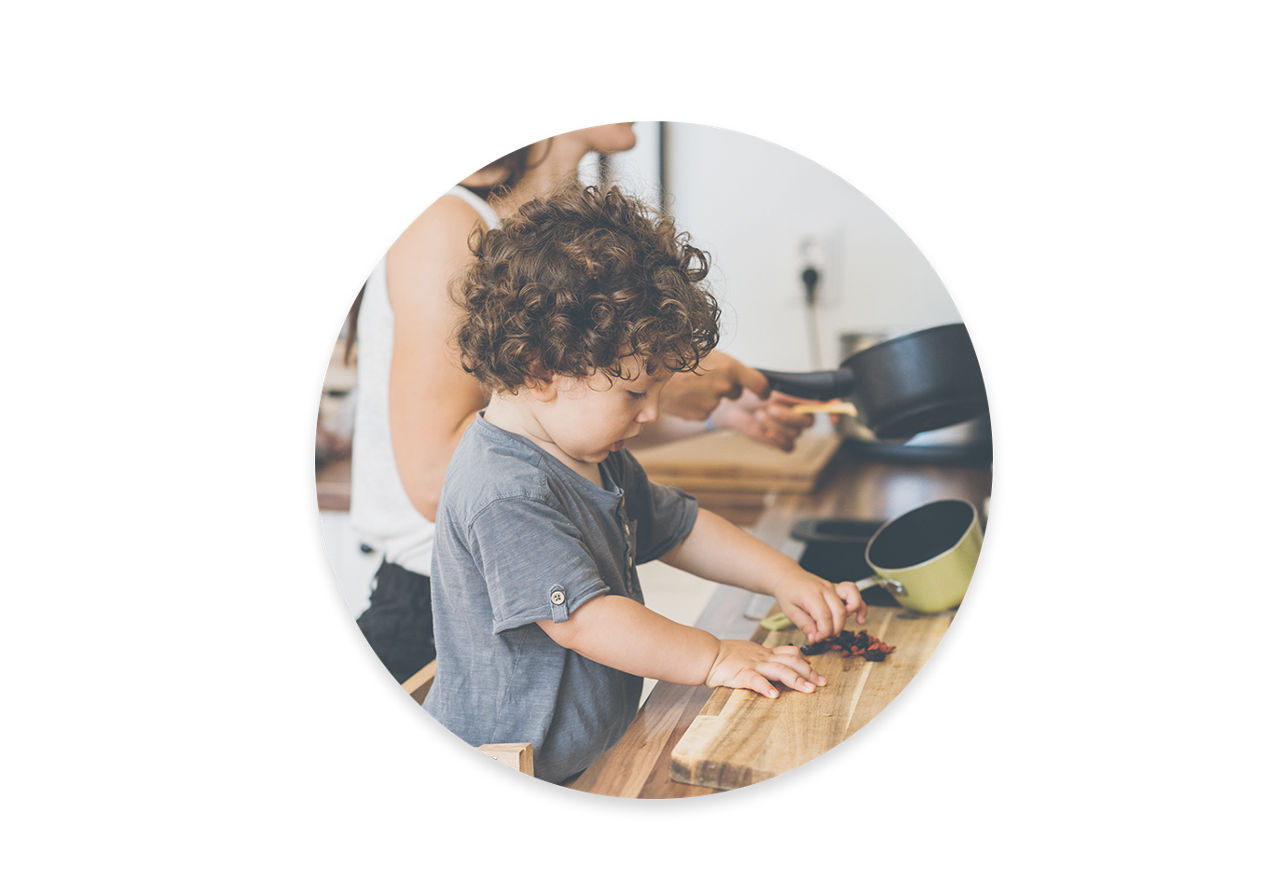Breastmilk is the best for babies. The World Health Organisation recommends exclusive breastfeeding for the first six months of life. Unnecessary introduction of bottle feeding or other food and drinks will have a negative impact on breastfeeding. After six months of age, infants should receive age-appropriate foods while breastfeeding continues for up to two years of age or beyond. Consult your doctor before deciding to use infant formula or if you have difficulty breastfeeding.
This is a very stressful time for parents of young children, fathers-to-be and pregnant women. That's why AptaAdvantage is sharing the World Health Organization's (WHO) recommendations on how to protect you and your little one, since you are your baby's primary source of contact with the outside world.
By following these simple methods and rules, you can limit the risks of spreading the Coronavirus:
![]()
1. WASH HANDS REGULARLY
The Corona virus is spread by human contact. Therefore, quite simply washing your hands is the best way to protect against it. So wash your hands before touching your tot and insist to anyone that's about to touch your baby, to wash their hands as well.
Unfortunately our babies can't wash their own hands. Well not yet anyway. So make it a regular part of play or mealtimes and thoroughly wash your hands together using an alcohol-based hand rub or soap and water.
Why?
This will kill any viruses that may be on our hands and instantly stop them from infecting you and your child.
MOH's handwashing guidelines:
https://www.healthhub.sg/live-healthy/471/keepyourhandsclean
2. LIMIT GET-TOGETHERS
Our babies are gorgeous and often attract people's attention. Therefore, as their parent it is your responsibility to minimize interactions between your little one and other people. Basically, stopping people from picking them up and cuddling them might seem harsh at first, but people will understand that this helps stop the spread of the virus.
Avoid close contact, maintain a safe distance of at least 1 metre between yourself and anyone who is sick and coughing or sneezing.
Why?
Because when someone coughs or sneezes, they spray small droplets from their nose or mouth which may contain the virus. If you or your child are nearby, you will breathe in the droplets that my contain the COVID-19 virus.
3. AVOID TOUCHING THE EYES, NOSE AND MOUTH
We tend to touch many different surfaces throughout the day unknowingly. We also like to touch our babies who in turn touch their own faces. For anyone that's about to handle your tot (and that includes yourself), make sure they've thoroughly washed their hands.
Why?
These surfaces can be contaminated with the Coronavirus and once the virus gets on the hands, it can easily be transferred into the body via the mouth, nose or eyes when we touch our face.
We can't stop touching different surfaces, neither can we stop our child's curiosity. But we can halt the passage of the virus into the body by not touching our face or our baby's face.
4. PRACTICE GOOD RESPIRATORY HYGIENE
Make sure you, and the people around your little one, follow good respirator hygiene. This means covering the mouth and nose with a bent elbow or tissue when coughing or sneezing. Then disposing of used tissues immediately.
Why?
Droplets spread the virus. By following good respirator hygiene, you protect your baby and the people around you not only from COVID-19, but also other viruses that cause the cold and flu.
5. FEELING SICK? SEEK MEDICAL CARE EARLY
It's simple - stay at home if you feel sick. If you have the early signs of a fever, cough and difficulty breathing, seek medical attention in advance. For more information, follow the directions of your local health authority.
Why?
Local authorities will have the most up-to-date information on the situation. Calling in advance will allow your health care provider to quickly direct you to the right health facility. This will also protect you and help prevent further spreading of the virus and other infections.

6. FOLLOW A SAFE AND HYGIENIC PREPARATION OF FOOD
Use separate chopping boards for raw and cooked foods. Also wash your hands between handling raw and cooked food. You don't have to avoid meat. Just be smart and make sure all the meat is cooked thoroughly and handled properly during preparation.
Why?
Because as a parent, we cook for ourselves, our family and our baby, and the Coronavirus can be spread by ingestion. Therefore, it's even more important for the person who's perparing food to follow food hygiene procedures while cooking.
5. FEELING SICK? SEEK MEDICAL CARE EARLY
It's simple - stay at home if you feel sick. If you have the early signs of a fever, cough and difficulty breathing, seek medical attention in advance. For more information, follow the directions of your local health authority.
Why?
Local authorities will have the most up-to-date information on the situation. Calling in advance will allow your health care provider to quickly direct you to the right health facility. This will also protect you and help prevent further spreading of the virus and other infections.
THIS INFORMATION IS NOT INTENDED TO BE A SUBSTITUTE FOR PROFESSIONAL MEDICAL ADVICE. ALWAYS SEEK THE ADVICE OF A HEALTHCARE PROFESSIONAL IF YOU HAVE ANY QUESTIONS OR CONCERNS.

Connect with our team of experts
We provide advice and support for you on your parenthood journey


